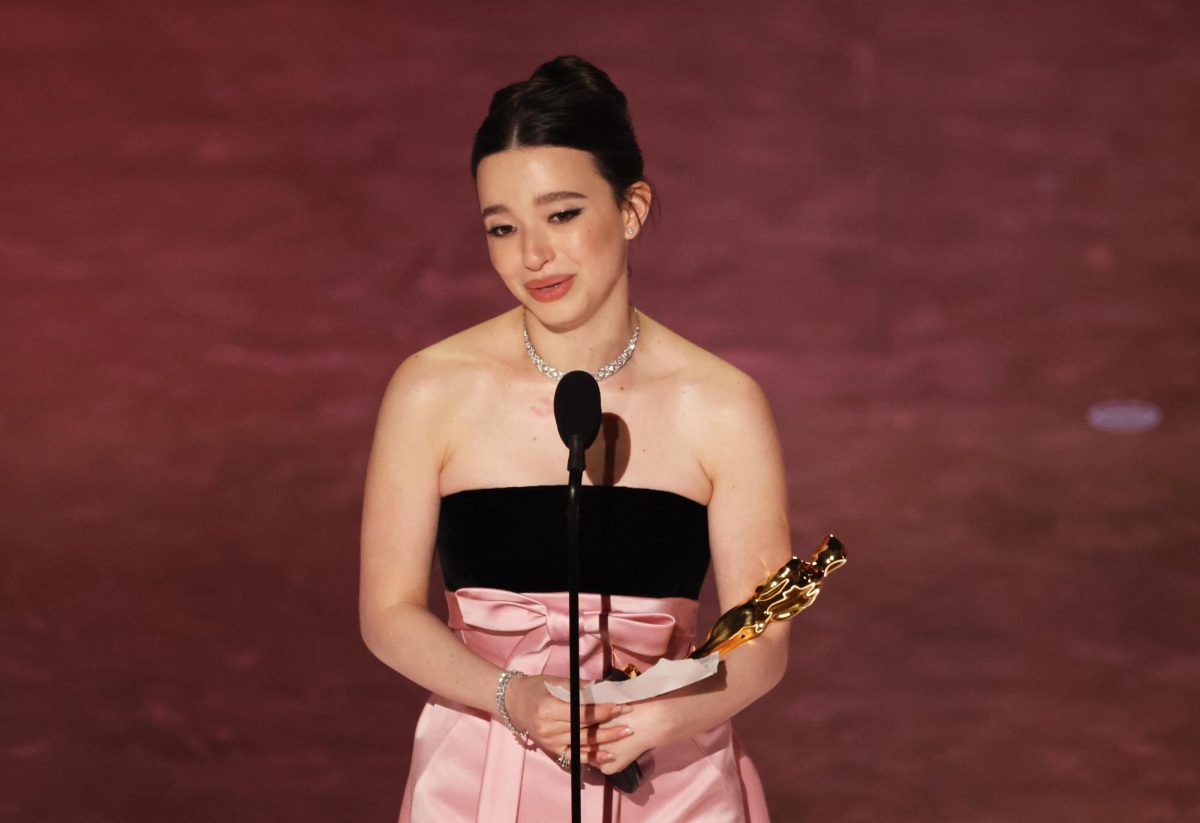Every year, the Academy of Motion Picture Arts and Sciences makes its selections for what they think is the best film of the year. Around the same time, film critics and publications also release their own selections along with numerous other categories.
Rarely have these selections overlapped.
The Academy selected “Anora” as the best of 2024. But IndieWire listed “Nickel Boys” as their pick. Variety gave this accolade to “Challengers,” while The Guardian gave it to “The Brutalist.” I could list every major entertainment news site’s selection, but that won’t prove what the actual best film of the year is.
At the end of the day, “best” is incredibly subjective — your thoughts are different from the person next to you. My father loves action movies, my mother loves dramas. They might dislike the other genre, but they can’t say that it’s objectively worse because it all comes down to preference.
So, if everyone has different preferences, how are we supposed to decide what the best movie really is?
In many industries, we leave it to the experts. As much as you might want to say your political arguments are right, it would probably be best to leave it to analysts and politicians. They’re in this industry for a living and have studied it extensively, so they must know more than you — hopefully.
This is why the Academy was created. A collective of nearly 10,000 industry professionals vote on who they think deserves these awards. They set the standard for the rest of the industry and create trends for the kind of movies made in Hollywood.
For instance, 1980s Hollywood is very different from the movies we see now.
Grand and majestic films like “Chariots of Fire,” “Amadeus” and “The Last Emperor” won the Academy Award for Best Picture, a good representation of the kinds of films that the industry was producing at that time. But in the 21st century, small and independent films have been the craze, with movies like “Moonlight,” “Parasite” and “Everything Everywhere All At Once” winning over films by major production companies.
Whoever tells you the Oscars aren’t important is wrong.
Winning opens many doors for filmmakers — take Chloe Zhao for example. After making indie films throughout the 2010s, she won the Academy Award for Best Picture and was one of only two women ever to win Best Director with her film “Nomadland.”. This propelled her into filmmaking stardom, allowing her to direct a Marvel film and even an upcoming Shakespeare film.
Now, even though the Academy has great influence, I reckon they aren’t as truthful in how they pick their winners. I blame one thing and one thing only: campaigning.
Did you see Timothée Chalamet on your social media feed in the past few months, maybe more than you would have liked? This isn’t a coincidence. It was all just him marketing the hell out of himself to make a statement that he should win the Best Actor award for his work in “A Complete Unknown,” which he ended up losing anyway.
Oscar campaigns have also been used to get films an award. “CODA,” a relatively small film, won Best Picture at the 94th Academy Awards because Apple put more money into the film’s campaign than its actual production. It’s now cemented in Oscars history as the first streaming film to win this award.
However, campaigns can also do the opposite. When Mikey Madison, who’s young and early on in her career, won Best Actress at the 97th Academy Awards, people were sent into an outrage. The public felt the award should’ve gone to an older and more accomplished actress, like Demi Moore. This has put “Anora” in the limelight for people to bash and ridicule, even though it won five Oscars. And because A24 decided to push this campaign, its reputation has been smeared.
Now, I love “Anora,” it was one of my favorite films last year. But, post-Oscars, I can’t seem to help but take in the discourse surrounding it just because people thought someone else should’ve gotten the award.
Earlier, I said we should look at the experts to tell us what is “the best.” But when these individuals don’t even watch the films and rely on campaigns to tell them what to vote for, it completely discredits the organization.
This act is repeated year after year and ultimately cancels out the entire point of the award show. When the Oscars focus more on the conversation around the movie rather than the film itself, you’ve lost all accreditation for being the indicator of what is great in Hollywood. This group of bought-out individuals should not represent the public’s interest.
So, what should be the indicator? Let me introduce you to Letterboxd.
It’s an app that allows you to rate the films you watch. Letterboxd creates an archive of every film you add and your corresponding reviews. It also shows an average rating across all users on the website for each movie.
If we look at the best film of 2024 according to Letterboxd, the Oscar would be given to “No Other Land,” a Palestinian-Israeli documentary about the occupation of the West Bank. With over 70,000 people having watched and rated it, nearly seven times more than the Academy, statistics tell us that the greater the sample size, the greater the reliability of the statistic.
Letterboxd doesn’t have to be the only solution. This is just a tool to help you create your own opinion, void of what everyone else has to say about movies. There’s an art to watching a film, deciding what you think about it and sharing your thoughts.
We shouldn’t look to anyone to tell us what to think. No organization, individual or public opinion should influence you. Especially if they are literally bought out by companies whose entire job is to influence you.
The Oscars are out. What’s in? Deciding what the “best” is yourself.
Joshua Abraham is a kinesiology junior and opinion writer for The Battalion.











TS • Mar 31, 2025 at 8:33 pm
You’re probably too young to remember that before Harvey Weinstein was a convicted criminal, he mastered the art of the Oscar campaign. There were no head scratching winners this year. Anora won the Palme d’Or at Cannes almost a year ago. I’m not sure your premise is well supported.